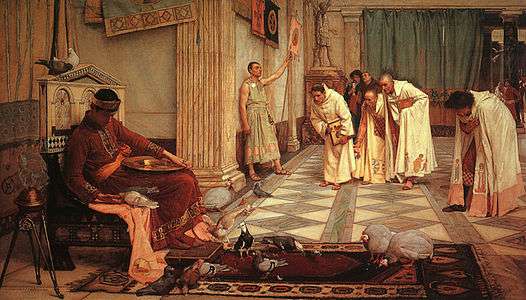423
| Millennium: | 1st millennium |
|---|---|
| Centuries: | 4th century · 5th century · 6th century |
| Decades: | 390s · 400s · 410s · 420s · 430s · 440s · 450s |
| Years: | 420 · 421 · 422 · 423 · 424 · 425 · 426 |
| 423 by topic | |
| Politics | |
| State leaders – Sovereign states | |
| Birth and death categories | |
| Births – Deaths | |
| Establishment and disestablishment categories | |
| Establishments – Disestablishments | |
| Gregorian calendar | 423 CDXXIII |
| Ab urbe condita | 1176 |
| Assyrian calendar | 5173 |
| Bengali calendar | −170 |
| Berber calendar | 1373 |
| Buddhist calendar | 967 |
| Burmese calendar | −215 |
| Byzantine calendar | 5931–5932 |
| Chinese calendar | 壬戌年 (Water Dog) 3119 or 3059 — to — 癸亥年 (Water Pig) 3120 or 3060 |
| Coptic calendar | 139–140 |
| Discordian calendar | 1589 |
| Ethiopian calendar | 415–416 |
| Hebrew calendar | 4183–4184 |
| Hindu calendars | |
| - Vikram Samvat | 479–480 |
| - Shaka Samvat | 344–345 |
| - Kali Yuga | 3523–3524 |
| Holocene calendar | 10423 |
| Iranian calendar | 199 BP – 198 BP |
| Islamic calendar | 205 BH – 204 BH |
| Javanese calendar | 307–308 |
| Julian calendar | 423 CDXXIII |
| Korean calendar | 2756 |
| Minguo calendar | 1489 before ROC 民前1489年 |
| Nanakshahi calendar | −1045 |
| Seleucid era | 734/735 AG |
| Thai solar calendar | 965–966 |
| Wikimedia Commons has media related to 423. |

The favorites of Emperor Honorius, by John William Waterhouse (1883)
Year 423 (CDXXIII) was a common year starting on Monday (link will display the full calendar) of the Julian calendar. At the time, it was known as the Year of the Consulship of Marinianus and Asclepiodotus (or, less frequently, year 1176 Ab urbe condita). The denomination 423 for this year has been used since the early medieval period, when the Anno Domini calendar era became the prevalent method in Europe for naming years.
Events
By place
Roman Empire
- August 15 – Emperor Honorius, age 38, dies at Ravenna of dropsy, perhaps pulmonary edema. With no children to claim the throne, Joannes, primicerius notariorum ("chief notary", head of the civil service), seizes the throne of the Western Roman Empire, and is declared emperor. Among his supporters are Flavius Aetius, Roman general (magister militum). Joannes' rule is accepted in the dioceses of Gaul, Hispania and Italia, but not in Africa.[1]
- Winter – Emperor Theodosius II refuses to recognize Joannes as emperor and prepares for war. He mobilizes an expeditionary force under command of Ardaburius and his son Flavius Aspar.
Europe
- The Pannonian Ostrogoths who have been settled in Thrace south of the Danube (see 421) by Theodosius II organize a farmers' strike. Only payment which amounts to a huge farm loan prevents them from occupying Rome.
By topic
Religion
- Theodoret becomes bishop of Cyrrhus (Syria). He converts more than 1,000 Marcionites in his diocese.[2]
Births
- Theodosius the Cenobiarch, monk and founder of the Monastery of St. Theodosius (approximate date)
Deaths
- Eulalius, antipope of Rome
- August 15 – Honorius, Roman Emperor (b. 384)[1]
- December 23 – Ming Yuan Di, ruler of the Xianbei state Northern Wei (b. 392)
- Tufa, Chinese princess and wife of Qifu Chipan
- Xiao Wenshou, empress dowager of the Liu Song Dynasty (b. 343)
References
- 1 2 Smith, Sir William (1849). Dictionary of Greek and Roman biography and mythology. 3. C.C. Little and J. Brown. p. 1211.
- ↑ Urbainczyk, Theresa (2002). Theodoret of Cyrrhus: the bishop and the holy man. University of Michigan Press. p. 21. ISBN 978-0-472-11266-1.
This article is issued from Wikipedia - version of the 9/21/2016. The text is available under the Creative Commons Attribution/Share Alike but additional terms may apply for the media files.